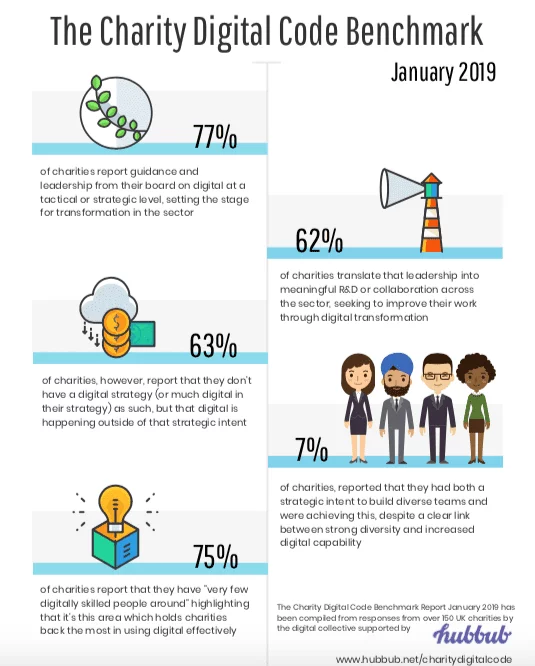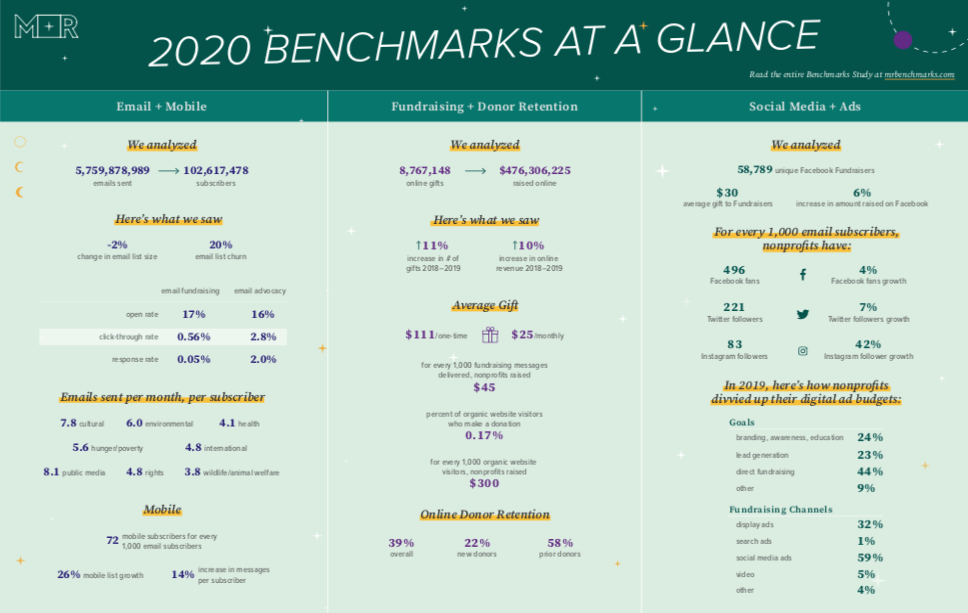Progress is happening but charities still falling behind on digital, Code benchmark shows
Over three-quarters (77%) of charities have guidance and leadership from their board on digital at a tactical or strategic level, but 75% have few digitally skilled staff and 63% do not have a digital strategy, according to the results of the Charity Digital Code Benchmark, released today.
Launched on 15 November last year, over 150 charities have used the Charity Digital Code Quick Assessment Tool to test their own digital capabilities and practices against those described in the sector, and have shared their data anonymously with the rest of the sector.
The results of the Charity Digital Code Benchmark have been published today in full to these participating charities and the full report is also available free of charge to any charity contributing data using the Quick Assessment tool.
While charities reported strong leadership from their boards around governance and setting the direction of the charity, and 62% said they were able to translate that leadership into meaningful R&D or collaboration across the sector, the results show real challenges delivering on this within the charity, particularly because of the shortage of very digitally skilled people.
However, the report highlights analytics as an area that the sector is starting to get to grips with. Over 40% of charities indicated that they had significant tactical or strategic work going on in this area, which although it means there is still a long way to go, the report says, shows that charities are focusing on understanding supporter behaviour, and in turn on the most effective ways to engage and respond.
Jonathan May, CEO of Hubbub Fundraising, which sponsored the research, said:
Advertisement
“Digital has changed our culture and has changed our economy, our relationships and the way we live our lives. It’s vital that charities use this benchmark as the measure of the size and urgency of the task ahead.
“The benchmark suggests that the sector as a whole is at risk of falling behind, and now is the time to act. Digital has now reached the point where a few strong digital people at the right place in the organisation working with the right partners on the right projects can have a transformative impact on both fundraising and service delivery.”
Martin Francis Campbell, CIO of World Vision UK, and chair of the Digital Collective, which has run the data gathering and research added:
“The Charity Digital Code has been a tremendously useful standard against which charities have been able to measure ourselves. It’s no surprise that we’re behind the curve on digital, and we know that we need to do more, but what’s so valuable about this report – and the code itself – is that, by focusing on the culture and practice of digital, rather than the technology, it shows us where we need to concentrate our effort in order to kickstart improvements overall.”





